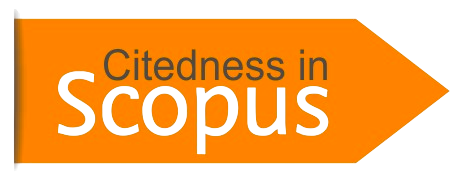The IMPLEMENTATION OF THE HOPE FAMILY PROGRAM IN INCREASING COMMUNITY WELFARE IN SHARIA ECONOMIC PERSPECTIVE
IMPLEMENTATION OF THE HOPE FAMILY PROGRAM IN INCREASING COMMUNITY WELFARE IN SHARIA ECONOMIC PERSPECTIVE
DOI:
https://doi.org/10.30631/sdgs.v1i1.1840Keywords:
Implementation, The Family Hope Program, social welfare and communityAbstract
The Family Hope Program is a social protection program that provides non-cash assistance to poor families designated as Beneficiary Families. The Family Hope Program is a program based on poor families, so the main targets are economically disadvantaged families. The Family Hope Program is an effort directed towards the formation and human resources focus on aspects of education, health, and social welfare. This research is entitled "Implementation of the Family Hope Program in Improving Community welfare in the Islamic Economic Initiative". The purpose of this study is to find out what the Family Hope Program is in providing social welfare to the community, find out how the implementation of the Family Hope Program in providing social protection to the community, and find out what are the driving factors and inhibiting factors in implementing the Family Hope Program. This research uses a qualitative method with a descriptive approach and in sampling researcher used sample selection techniques with the provision of characteristics and characteristics of objects in the study, as for data collection techniques, namely through observation, interviews, and documentation. The results showed that the social protection provided by The Family Hope Program to the community was in the fields of education, health, and social welfare. The implementation of The Family Hope Program in Mendalo Indah Village goes through several stages, the first starting from the initial meeting stage, the second stage of entering data into the Management information system, the third stage of payment, and the last stage of commitment verification. The driving and inhibiting factors of The Family Hope Program carried out in Mendalo Indah Village are that although it has not been fully implemented perfectly, the community admits that this program has helped and provided relief to the community.
References
Al-Qur'an dan Terjemahnya Kementerian Agama RI, (Jakarta: Al-Hadi Media Kreasi, 2015)
Abdussmad, Zuchri. Metode Penelitian Kualitatif. Pertama. CV syakir Media Press, 2021.
Arifin, Zainal. Penelitian Pendidikan: Metode Dan Pradigma Baru. 2nd ed. Bandung: PT Remaja Rosdakarya, 2012.
Erwan Agus Purwanto and Dyah Ratih Sulistyastuti, Implementasi Kebijakan Publik, Konsep Dan Aplikasinya Di Indonesia (Yogyakarta: Gava Media, 2021)
fadlan, Fadlan. "Konsep Kesejahteraan Dalam Ekonomi Islam Perspektif Maqashid Al-Syariah” (2019): Surabaya.
Ismail, Asep Usman. Sebuah Rintisan PembangunanParadigma Sosial Islam Yang Berkeadilan Dan Berkesejahteraan. Tangeran: Lentera Hati, 2012.
Kementrian Sosial RI. Peraturan Menteri Sosial Republik Indonesia Nomor 1 Tahun 2018 Tentang Program Keluarga Harapan. Jakarta, 2018.
Purwanto, Erwan Agus, and Dyah Ratih Sulistyastuti. Implementasi Kebijakan Publik, Konsep Dan Aplikasinya Di Indonesia. Yogyakarta: Gava Media, 2021.
Republik Indonesia, Kementrian Sosial. Pedoman Pelaksanaan Program Keluarga Harapan 2021. Jakarta, 2021.
Salamah, Ummu. Pengantar Ilmu Kesejahteraan Sosial. Insan Akademika, 2012.
Sugiyono. "Metode Penelitian Kuantitatif, Kualitatif, Dan R&D.” 226, n.d.
Wahab, and Soloichin.A. Analisa Kebijkan Dari Formulasi Ke Implementasi Kebjjaksanaan Negara. Malang: Bumi Aksara, 2012.
Zain, Arifin. Islam Dan Kesejahteraan Sosial Antara Ajaran Dan Realitas Sosial, n.d.














